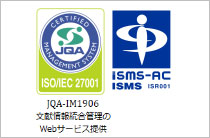ホームIMICライブラリMMWR抄訳2016年(Vol.65)出生時に小頭症を伴わずに2015年10月から201・・・
2016/12/02Vol. 65 / No. 47
MMWR65(47):1343-1348
Description of 13 Infants Born During October 2015–January 2016 With Congenital Zika Virus Infection Without Microcephaly at Birth — Brazil
出生時に小頭症を伴わずに2015年10月から2016年1月に出生した先天性ジカウイルス感染症の乳児13例に関する記述― ブラジル
先天性ジカウイルス感染症は小頭症および重症の脳異常の原因となる。臨床的な症候群に関する情報が利用可能になるにつれ、表現型は先天性の小頭症のない脳異常のように、場合によっては比較的軽度な特徴にも拡大している。先天性の小頭症を含まない臨床像の可能性を調査するために、出生時に正常な頭囲で先天性のジカウイルス感染のエビデンスのある乳児13例(男児9例、女児4例)について、レトロスペクティブに評価した。症例シリーズ13例の頭囲は正常[性別および在胎期間の平均からの低下が2標準偏差(SD)以下]で、11例は満期分娩(在胎期間:37~41週)、2例は早産(在胎期間:35週、36週)であった。13例中6例の母親は、妊娠2~5カ月に皮膚疹を認めた。すべての乳児の出生児の体重は、在胎期間に対して適切であった。すべての乳児において、脳脊髄液(CSF)および血清の両方かどちらか一方で、ジカウイルス特異的IgM試験が陽性であった。7例でCSF中のジカウイルスRNAのRT-PCR法による試験を実施したが、全例で陰性で、同時に採取した2例の血清中でも陰性であった。すべての乳児で生後から最終試験の間(早ければ生後5カ月)に頭囲の成長速度が減少し、11例で出生後の小頭症(年齢および性別による頭囲平均値より2SDを超えて低下)と診断された。神経画像検査(CTスキャン:13例、MRI:10例)では、皮質発達の先天性の異常(主に前方)および主に皮質下領域の石灰化(特に皮質と白質間の移行領域)を認めた。すべての乳児で、脳室拡大を伴う脳容量の減少のエビデンスが得られた。また、13例中2例では脳実質外CSFスペースが増加した。これらの結果は、ジカウイルスへの出生前曝露のある乳児では、出生時に小頭症がなくても、先天性ジカウイルス感染症またはジカウイルス関連の脳およびその他の異常の存在を除外できないというエビデンスを示すとともに、早期の神経画像検査の重要性を強調している。
References
- de Araújo TV, Rodrigues LC, de Alencar Ximenes RA, et al. Association between Zika virus infection and microcephaly in Brazil, January to May, 2016: preliminary report of a case-control study. Lancet Infect Dis 2016. Epub September 15, 2016.
- Moore CA, Staples JE, Dobyns WB, et al. Characterizing the pattern of anomalies in congenital Zika syndrome for pediatric clinicians. JAMA Pediatr 2016. <http://dx.doi.org/10.1001/jamapediatrics.2016.3982>
- Schuler-Faccini L, Ribeiro EM, Feitosa IM, et al. Possible association between Zika virus infection and microcephaly—Brazil, 2015. MMWR Morb Mortal Wkly Rep 2016;65:59–62. <http://dx.doi.org/10.15585/mmwr.mm6503e2>
- Russell K, Oliver SE, Lewis L, et al. Update: interim guidance for the evaluation and management of infants with possible congenital Zika virus infection—United States, August 2016. MMWR Morb Mortal Wkly Rep 2016;65:870–8. <http://dx.doi.org/10.15585/mmwr.mm6533e2>
- Lanciotti RS, Calisher CH, Gubler DJ, Chang GJ, Vorndam AV. Rapid detection and typing of dengue viruses from clinical samples by using reverse transcriptase-polymerase chain reaction. J Clin Microbiol 1992;30:545–51.
- Lanciotti RS, Kosoy OL, Laven JJ, et al. Genetic and serologic properties of Zika virus associated with an epidemic, Yap State, Micronesia, 2007. Emerg Infect Dis 2008;14:1232–9. <http://dx.doi.org/10.3201/eid1408.080287>
- American Academy of Pediatrics, Joint Committee on Infant Hearing. Year 2007 position statement: principles and guidelines for early hearing detection and intervention programs. Pediatrics 2007;120:898–921. <http://dx.doi.org/10.1542/peds.2007-2333>
- França GV, Schuler-Faccini L, Oliveira WK, et al. Congenital Zika virus syndrome in Brazil: a case series of the first 1501 livebirths with complete investigation. Lancet 2016;388:891–7. <http://dx.doi.org/10.1016/S0140-6736(16)30902-3>
- Moura da Silva AA, Ganz JSS, Sousa PD, et al. Early growth and neurologic outcomes of infants with probable congenital Zika virus syndrome. Emerg Infect Dis 2016;22:1953–6. <http://dx.doi.org/10.3201/eid2211.160956>
- Wimalasundera N, Stevenson VL. Cerebral palsy. Pract Neurol 2016;16:184–94. <http://dx.doi.org/10.1136/practneurol-2015-001184>
Copyright © 2013 International Medical Information Center. All Rights Reserved.












